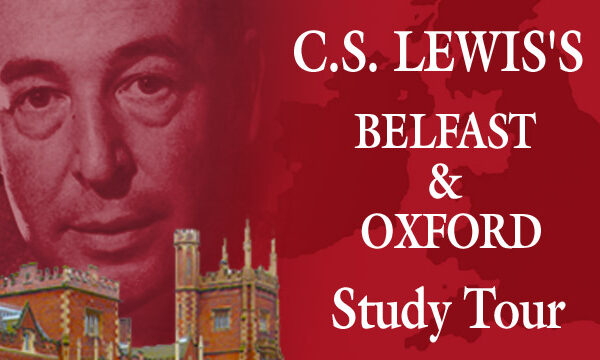Back to series



The Word Made Flesh
Click here to open a Print - Friendly PDF
Gibson’s The Passion of the Christ and Wolfe’s A Man in Full as Windows into the Heart of Human Life
No one who has heard the Irish poet Bono sing his songs has any doubt that he is serious about wanting to feel the world like God does. The lyrics of U2 are psalm-like, a cry to the heavens from someone living on the earth, someone seeing and hearing a world full of sorrow and injustice and evil.
“When I look at the world,” it is not the way it is supposed to be, and Bono grieves, lamenting its condition and his own inability to make sense of it all. Burdened but not crushed, he calls out, “I want to feel it like you do!”
Words can be cheap. It is only when words are made flesh that we understand them, that we see what they mean.
Take the word passion, for example. Like the words pathos, empathy, sympathy, compassion, and apathy, it grows out of a Latin word pati, “to suffer.” The Oxford English Dictionary, which offers in its definitions a history of the word, tells the story of passion by beginning with the death and resurrection of Christ. The very definition of the word is bound up historically and etymologically with the suffering of Christ.
So the word compassion is “to suffer with,” while the word apathy is “without feeling, without suffering, without passion.”
Two Words, Two Worldviews
Those two words are at the heart of two worldviews, two stories, and two story-tellers, Tom Wolfe and Mel Gibson. For three decades the one has been America’s best reporter on the unfolding drama of what it feels like to be human, his last novel, A Man in Full, summing up the century and the 1990s. The other is America’s favorite leading man, hero of the best stories that Hollywood has told over the last generation; this week* his film The Passion of the Christ opens, and before the lights go down in the first theater, it has already created a huge buzz. For weeks, newspapers, magazines, the Internet, radio, and TV have been full of the film, wondering, accusing, pondering its meaning.
Wolfe and Gibson are wonderfully gifted artists, telling tales in novels and films that reflect upon the human condition, asking the most searching questions: who are we? why are we here? what is it that matters most? how shall we live? Those questions come out of the human heart, always and everywhere. We expect that a person’s work will reflect their worldview, that what one believes will shape how one sees and hears; strangely, it is equally true that the way we live in the world affects what we believe about the world. Worldviews are dynamic, as belief and behavior form each other.
 In his novel Wolfe tells a tale of a wealthy entrepreneur who is largely responsible for reshaping the Atlanta skyline over the course of his career. This is the Atlanta of the biggest airport in the world, of the 1996 Olympics, of the New South and the New America. “The last great white football player at Georgia Tech,” Charlie Croker at 60 has a far-flung business empire, spanning the continent. But in his greed he overreaches, and his accountant suggests he lop off a venture in California that involves huge frozen food warehouses. To Croker and his accountant, it is only a line item in a very complex budget.
In his novel Wolfe tells a tale of a wealthy entrepreneur who is largely responsible for reshaping the Atlanta skyline over the course of his career. This is the Atlanta of the biggest airport in the world, of the 1996 Olympics, of the New South and the New America. “The last great white football player at Georgia Tech,” Charlie Croker at 60 has a far-flung business empire, spanning the continent. But in his greed he overreaches, and his accountant suggests he lop off a venture in California that involves huge frozen food warehouses. To Croker and his accountant, it is only a line item in a very complex budget.
To Conrad Hensley, the last man hired at one of the warehouses, it is his job—and he has a wife and two small children, and no other marketable skills. Going into downtown Oakland in an attempt to address his situation, he gets a parking ticket. Protesting his innocence all the way into court, the judge tells him to either pay the fine or go to jail. Believing himself wrongly accused, he takes imprisonment—leaving his family to fend for themselves.
Preparing for the months of his confinement, he chooses a book from the prison library. But, the wrong book comes! Rather than his choice, he is given the Stoic philosopher Epictetus. Very bright but unschooled, Conrad begins to read, surprising himself with the interest he has in the Greek philosopher’s meditations. In particular he is intrigued with the call for “detachment,” to be someone who knows about the sorrows and pains of the world, but finds within himself the ability to stand clear of them, maintaining his happiness and humanity—which is the goal of life. Apatheia allows one to live in the world without being overwhelmed by it.
It is not a cheap answer. To look unblinkingly at the complex corruptions in the world—in our own hearts and rippling out into the farthest reaches of the universe—and not be crushed by them is very hard. Who wants to take on the wounds of the world?
And so Conrad takes up the Stoicism of Epictetus, whose words ring true, giving light to his path in a very dark place. He finds that through the Stoic virtue of apatheia he can hold onto his humanity in a very inhumane setting, the county jail.
When you see anyone weeping in sorrow… take care not to be overcome by the apparent evil; but discriminate, and be ready to say, ‘What hurts this man is not this occurrence itself—for another man might not be hurt by it—but the view he chooses to take of it.’ As far as conversation goes, however, do not hesitate to sympathize with him, and if need be, to groan with him.
Take heed, however, not to groan inwardly too. (The Enchiridion, 16)
It is not a cheap answer.
A year or so ago I had lunch with Wolfe on Capitol Hill. Several of us who had honest interest in the thoughtfulness of his essays and novels sat and talked about wide-ranging topics. At one point I told him that I had read most of his work, enjoyed it very much, and regularly assigned it to my students. And then I told him of the week I spent reading A Man in Full. It is a long story, wonderfully imagined, setting forth a vision of what it means to be a complete human being, fully alive, a man in full.
But then I paused, telling him that I loved it all the way through—until the last 15 pages…. There was an ellipsis in the conversation. He looked across the table, and with remarkable candor said, “I don’t finish my novels very well, do I?”
What could I say? One of the best writers we have, one of the best-selling novelists in history; he doesn’t finish his stories well? But he was right. He had not finished it well; while showing the fundamental flaw of Stoicism at the point of greatest tension in the story, in the end he offers it as an honest answer. Wolfe then continued, “I thought of a Christian conversion, but that’s been done.” Against Epictetus, I groaned inwardly, and thought about Crime and Punishment, Les Miserables, and what might have been. When the lunch was over, he and I talked briefly, and I longed for more conversation—and told him so.
The God Who Knows and Loves at the Same Time
Gibson has told a different story, one which has at its heart the God who sees and hears and feels and acts—and who asks us to be like him.
This is not the God who looks, and looks away, who knows but does not love. Abraham Heschel, the great Jewish scholar, in his penetrating study The Prophets, argues that the God of Israel is the God who sees and hears, and responds; he steps into history with mercy and justice. Pressing his point, he sets forth a Hebrew vision of knowing as the core of the character of God; that when God knows, he feels what he knows, he acts on the basis of what he knows. This God rejoices with those who rejoice, mourns with those who mourn.
Intriguingly Heschel also argues that the prophets were speaking into a Stoic world, where the vision of apatheia provided the path to happiness. How else could one bear the bruises of a broken world? With rare philosophical and theological insight, he reflects upon that question, offering the pathos of God as a more satisfying response.
But, it was into that Stoic world that the prophets spoke, calling the people of God to be like God: loving what God loved, hating what God hated, showing mercy where God requires mercy, justice where God requires justice. And all this profoundly because God sees and hears and feels and acts—and expects his people to be like him.
 It is this God, and no other, who became incarnate in Jesus Christ. The justice of God, the mercy of God, are made flesh in his flesh; in his body the Word is made flesh.
It is this God, and no other, who became incarnate in Jesus Christ. The justice of God, the mercy of God, are made flesh in his flesh; in his body the Word is made flesh.
One of the great theologians of the early twentieth century was Benjamin Warfield of Princeton Seminary. Given Heschel’s claim about the prophets and Stoicism, it is fascinating that Warfield argued the same point with regard to the gospels, that they too are written into a Stoic world. In his book, The Person and Work of Christ, he sets forth a rich vision of the emotions of God; that in the incarnation we can see God’s compassion, God’s anger, made flesh in the God who is man, Christ.
As he opens windows into the character of God, he stops along the way to ponder the story of Jesus at the tomb of Lazarus (John 11). With piercing insight he explains the text, allowing us to see God weeping and groaning at the death of his friend. But Warfield, while acknowledging the genuine grief of God, makes a critical, line-in-the-sand statement: God is angry at death. Twice the words “he groaned inwardly in spirit” are used. The Greek poets used the same word to describe a war-horse rearing on its hind legs, nostrils flared, charging into battle. Calvin offered the image of “a champion preparing for conflict,” raging against his enemy. Warfield simply says, “It is death that is the object of his wrath, and behind death him who has the power of death….”
For 30 years this has been for me a make-or-break chapter in the Bible. If God is not angry at evil, at sin and its consequences, then, frankly, I am not interested. The very good news is that justice, mercy, compassion, and anger are made flesh in the passion of Christ. And, it is in that passion that we come to understand the meaning of love, embodied as it is in the death and resurrection of Christ.
My good friend Denis Haack of Ransom Fellowship, editor of Critique, has an unusual ability to read the Word and the world at the same time. Several weeks ago he reviewed The Passion with his characteristic skill, noting both its aesthetic qualities and its theological dynamics. He then told about seeing the film last fall in Nashville at the Art House. Charlie and Andi Peacock had invited Gibson to show the film to their friends, many of whom work in the music industry there. Denis remembers these words of Gibson’s, when asked why he had made the film:
I grew up in a religious home, a Catholic home, but I
grew up wild and became a monster. When you are a
monster you end up being deeply wounded. All I can tell
you is that because of his wounds, my wounds have
been healed—and if you think that sounds corny, you
should know that I don’t really give a damn.
Not many want to take on the wounds of the world. It is for that reason that on a certain level I respect Stoicism, whether it is the version of Epictetus, or the ways that it has influenced various forms of pantheism, or the very contemporary account that Tom Wolfe offers at the dawn of the twenty-first century. The world with its complex suffering is too much. It is easier to be detached, to hold onto one’s happiness, one’s vision of virtue—and apatheia is the perennial path that makes that possible.
But, while I respect the Stoic vision, it leaves me at a loss too. There is something in making words flesh that draws me, that challenges me to a truer heroism, to a way of being human that allows me to enter into the complexity of the world, full of joys and sorrows, and to make them mine, to feel them fully. The hardest task in the whole world is to know and to love at the same time from the most personal to the most public realms of my responsibility. That call stretches my soul, and yet it satisfies it too. There is something about that which is more human, more a man in full than Stoicism ever imagined.
Words, Words, and More Words
In the info-glut culture in which we live and move and have our being, words are everywhere. They wait for us in the morning paper, they drone on long after we have gone to bed. But, those who are the most perceptive observers note this strange irony: the more information we have, the less engaged by it we are. With clear exceptions, for most people most of the time, the more we know the less we care.
We feel that we cannot feel so much, because it hurts too much. Our age seems unique in that way, and of course it is. There has never been a moment like ours, with so much to know. But, other sensitive souls in other eras have felt the same pain, looking out at the world. Long before anyone imagined the possibility of the information age, the poet Byron wryly noted, “He who knows the most mourns the deepest.”
 The hard truth is that none of us are going to find a world that is different than this one, a world of real good and real evil, of true joy and true sorrow. No one has, no one will. The challenge then is to find a way to really be in it, to live in it fully aware and attentive, and yet not be so shaped by it that we find our capacity to care for it diminished. The global reach of the first-world’s technologies, our media and entertainment networks that literally cover the planet, make it virtually impossible to find a place undisturbed by the reach of the Internet and its windows onto the information superhighway—and that is both blessing and curse.
The hard truth is that none of us are going to find a world that is different than this one, a world of real good and real evil, of true joy and true sorrow. No one has, no one will. The challenge then is to find a way to really be in it, to live in it fully aware and attentive, and yet not be so shaped by it that we find our capacity to care for it diminished. The global reach of the first-world’s technologies, our media and entertainment networks that literally cover the planet, make it virtually impossible to find a place undisturbed by the reach of the Internet and its windows onto the information superhighway—and that is both blessing and curse.
Not so long ago, Harper’s put it this way in a cover story: “The Numbing of the American Mind: Culture as Anesthesia.” We might call it a sociological stoicism, as it is not because of the philosophers we have read so much as it is in the air we breathe. With a remarkable eye, the author walks through the post-911 world, arguing that a “numbing” of heart and mind takes place simply by taking part in contemporary culture. The ways we connect to the wider world are at the very same time dis-connecting us to it, making us numb to it. We cannot feel so much, because it hurts too much.
For Bono it is his persistent plea in the corridors of the Congress, of the White House and the World Bank, on behalf of those who groan and suffer in the global AIDS crisis—done so with insight, with patience, with courage, with grace—that gives weight to his words, “I want to feel it like you do!” But, it is the life he lives that makes his words honest, as they are words made flesh in imitation of the Word made flesh.
Gibson’s The Passion presents all of us with questions to ask and answer: who are we? why are we here? what is it that matters most? how shall we live? Simply, straightforwardly, he offers us the imitation of Christ. And that has never ever been a cheap answer.

Steven Garber
ProfessorSteven Garber is the Senior Fellow for Vocation and the Common Good for the M. J. Murdock Charitable Trust. As a teacher, he has recently served as Professor of Marketplace Theology and Director of the Masters in Leadership, Theology and Society at Regent College, Vancouver, BC. he is the author of several books, including Visions of Vocation: Common Grace for the Common Good, his most recent is The Seamless Life: A Tapestry of Love and Learning, Worship and Work. One of the founders of the Wedgwood Circle, and has been a Principal of the Washington Institute for Faith, Vocation and Culture. He completed his PhD in the Philosophy of Learning at Pennsylvania State University.

 COPYRIGHT: This publication is published by C.S. Lewis Institute; 8001 Braddock Road, Suite 301; Springfield, VA 22151. Portions of the publication may be reproduced for noncommercial, local church or ministry use without prior permission. Electronic copies of the PDF files may be duplicated and transmitted via e-mail for personal and church use. Articles may not be modified without prior written permission of the Institute. For questions, contact the Institute: 703.914.5602 or email us.
COPYRIGHT: This publication is published by C.S. Lewis Institute; 8001 Braddock Road, Suite 301; Springfield, VA 22151. Portions of the publication may be reproduced for noncommercial, local church or ministry use without prior permission. Electronic copies of the PDF files may be duplicated and transmitted via e-mail for personal and church use. Articles may not be modified without prior written permission of the Institute. For questions, contact the Institute: 703.914.5602 or email us.
-
Recent Podcasts
The Side B Stories – Dr. James Tour’s story
by Jana Harmon, James Tour on April 12, 2024From a secular Jewish home, scientific scholar and...Read More
-
Why are Christians so Bad?
by Paul Joen on April 5, 2024
-
Questions That Matter Podcast – Dai Hankey and Gospel Hope for Weary Souls
by Randy Newman, Dai Hankey on April 5, 2024
-
Recent Publications
Isn’t Morality Relative?
by Christopher L. Reese on April 1, 2024It is widely accepted in the Western world...Read More
-
Do Muslims and Christians Worship the Same God?
by Andy Bannister on March 1, 2024
-
Artificial Intelligence and Its Impacts on Humanity
by John Lennox on February 13, 2024
0
All Booked
0.00
All Booked
0.00
All Booked
20599
GLOBAL EVENT: 2024 Study Tour of C.S. Lewis’s Belfast & Oxford
https://www.cslewisinstitute.org/?event=global-event-2023-study-tour-of-c-s-lewis-belfast-oxford-2&event_date=2024-06-22®=1
https://www.paypal.com/cgi-bin/webscr
2024-06-22

Next coming event
Days
Hours
Minutes
Seconds
GLOBAL EVENT: 2024 Study Tour of C.S. Lewis’s Belfast & Oxford
On June 22, 2024 at 12:00 pmat Belfast, Northern Ireland & Oxford, EnglandTags
Speakers

Steven Garber
Professor
Team Members

Steven Garber
ProfessorSteven Garber is the Senior Fellow for Vocation and the Common Good for the M. J. Murdock Charitable Trust. As a teacher, he has recently served as Professor of Marketplace Theology and Director of the Masters in Leadership, Theology and Society at Regent College, Vancouver, BC. he is the author of several books, including Visions of Vocation: Common Grace for the Common Good, his most recent is The Seamless Life: A Tapestry of Love and Learning, Worship and Work. One of the founders of the Wedgwood Circle, and has been a Principal of the Washington Institute for Faith, Vocation and Culture. He completed his PhD in the Philosophy of Learning at Pennsylvania State University.




